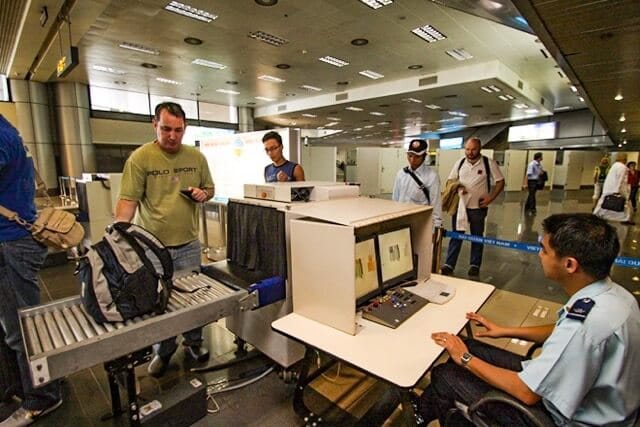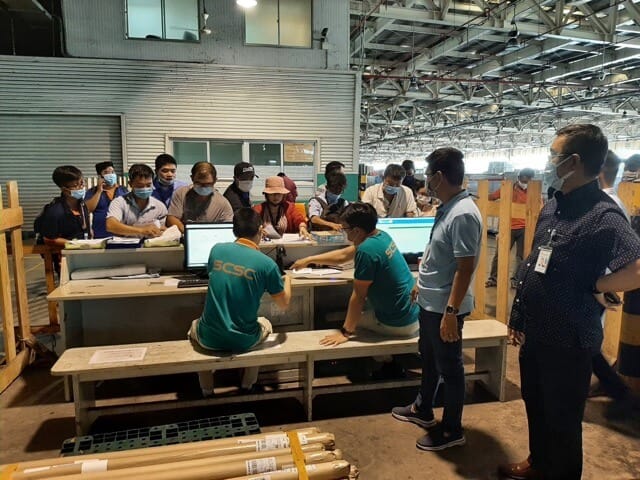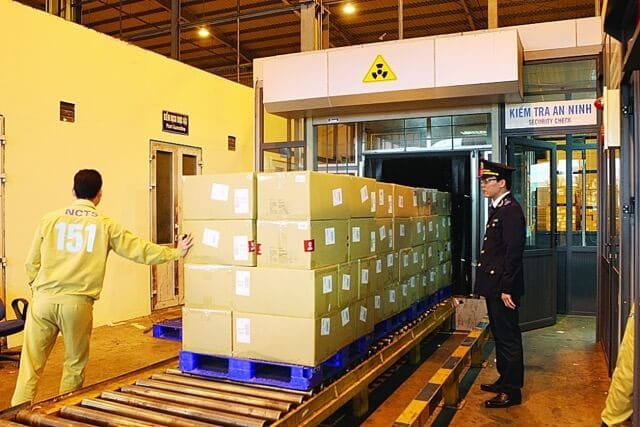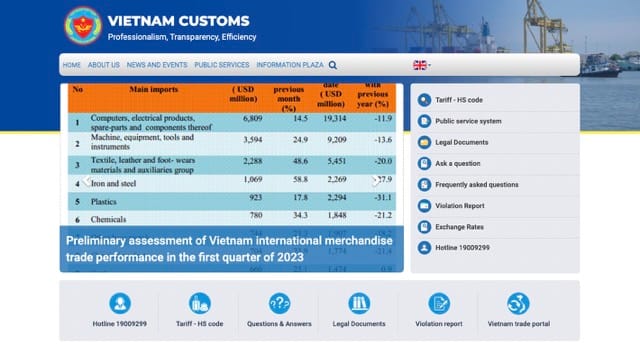Are you looking for a memorable travel experience? Then look no further than Vietnam – a captivating Southeast Asian country boasting stunning natural landscapes, vibrant culture, and culinary delights.
However, navigating through the customs regulations of any foreign destination can often be daunting. That’s why we’ve compiled this comprehensive guide to give you all the information you need on Vietnam Customs Regulations.
From instructions on entering the country and importing goods to food regulations in place – this blog post covers everything so that your trip to Vietnam is as effortless and hassle-free as possible!
Contents
Understanding Vietnam Customs Regulations for Travelers
When traveling to Vietnam, it’s important to familiarize yourself with the country’s customs regulations to ensure a smooth journey.

Vietnam, a beautiful country with a rich culture and history, has specific rules to follow when entering and exiting.
To avoid any issues with the authorities, it is crucial to have the necessary travel documents like a valid passport and visa.
Vietnam also enforces a list of prohibited and restricted items for both import and export, so it’s important to familiarize yourself with these regulations before packing your bags.
Items like drugs, firearms, and those harmful to the environment or public health are strictly prohibited. Some items, such as wildlife products, cultural artifacts, and pharmaceuticals, require specific documentation or permits for import or export.
Understanding these restrictions will ensure a hassle-free journey through Vietnam’s customs department.
Whether you’re planning an international trip or visiting Vietnam, being aware of customs regulations and having the proper documentation is crucial to avoid any unexpected delays or complications.
These regulations are in place to protect the country’s citizens and resources from potential threats such as illegal drugs, hazardous materials, and prohibited items.
By complying with these rules, travelers can expect a smooth experience at customs and avoid any unwanted surprises. Take the time to research and gather all the necessary paperwork and declarations in advance to enjoy a worry-free travel experience.
Understanding vaccines requirements in Vietnam is also a must.
Regulations for Importing Goods into Vietnam
Importing goods into Vietnam requires a thorough understanding of the customs regulations and requirements. Ensuring a smooth and efficient process involves familiarizing yourself with the necessary import procedures and documentation.

Vietnam has specific rules in place to govern the importation of goods, including proper documentation, accurate declaration of interests, and payment of import duties and taxes.
To successfully import goods into Vietnam, it is crucial to comply with all customs regulations. Failure to do so can result in delays or penalties.
The customs clearance process is vital in importing goods into any country. It ensures that the imported products meet the country’s regulations and are safe for consumers.
When importing goods into Vietnam, you must provide the required documentation, such as invoices, packing lists, and bills of lading. Customs officials will assess the value of your products and classify them based on their tariff codes.
To ensure the safety and compliance of the imported goods, customs procedures, and inspections will be conducted, including checks for any prohibited substances.
Understanding the customs clearance process is essential for a successful trade. Conduct thorough research before importing goods to comply with customs regulations and ensure a smooth importation process.
Customs regulations are must-know things to have a great Vietnam solo trip.
Food Regulations in Vietnam
When traveling to Vietnam, it’s important to be aware of the customs regulations regarding food. To ensure the safety of travelers and the local population, certain food items are prohibited from being brought into the country.

Vietnam has specific regulations in place to protect its native flora and fauna and to prevent the introduction of diseases and pests. As a result, there are restrictions on bringing in certain animal and plant products, including pork, chicken, fresh produce, and traditional medicine and herbs. These restrictions aim to safeguard the country’s agricultural industry and biodiversity.
All food items brought into Vietnam must undergo quarantine and sanitary requirements before being allowed entry. It is important to research and understand these regulations beforehand and always declare any food items to customs officials upon arrival. Non-compliance can result in penalties and legal consequences.
Ensuring compliance with food import regulations is crucial for both the health of consumers and the food industry’s sustainability. By following these regulations, businesses can protect their reputation and avoid potential legal actions.
Compliance with hygiene protocols, labeling requirements, and other regulations is essential to guarantee food safety and consumers’ well-being.
Respecting and adhering to local laws and customs regarding food import regulations is a legal obligation and a moral responsibility. It is vital to prioritize consumers’ safety and preserve Vietnam’s natural resources and cultural heritage.
Learn more about water resources in Vietnam.
The Official Vietnam Customs Website and Resources
Welcome to customs.gov.vn, the official website of Vietnam’s customs agency. This user-friendly website has been designed to provide easy navigation and access to relevant information regarding customs regulations in Vietnam.

The primary purpose of customs.gov.vn is to facilitate international trade by regulating the import and export of goods, ensuring compliance with customs laws and regulations, and collecting duties and taxes. This website serves as a valuable resource for individuals and businesses involved in international trade.
On customs.gov.vn, you will find a wide range of resources to assist you in understanding and complying with Vietnam’s customs regulations. The website provides indexes of import and export tariffs, allowing you to determine the applicable rates for your goods. You can also access detailed information on customs procedures, ensuring that you are well informed about the necessary steps for importing or exporting goods.
The website offers a user-friendly interface that allows you to search for specific information and access your needed resources quickly. Whether you are a traveler planning a trip to Vietnam or an importer seeking clarity on customs regulations, customs.gov.vn is an invaluable tool.
The website provides guides, forms, and frequently asked questions (FAQs) for travelers that address common questions and requirements. This ensures that you have the necessary information and documents for a smooth entry and exit from Vietnam.
For importers, customs.gov.vn offers trade statistics, import regulations, and customs tariffs. These resources clarify what goods are permitted for import and the corresponding duties and taxes.
Whether you are a traveler or an importer, customs.gov.vn is an essential resource for navigating Vietnam’s customs regulations. Take advantage of the wealth of information available on the website to ensure a hassle-free experience and compliance with customs laws.
Conclusion
Vietnam has established several customs regulations designed to protect the country’s resources and ensure travelers experience an enjoyable visit. Fortunately, these regulations are relatively simple to understand once you familiarize yourself with the basic requirements.
Those planning on entering or importing goods into Vietnam should take the time to review all relevant laws and policies before arrival in order to avoid any misunderstandings or complications at the border.
Even though there are many rules and regulations one must follow while traveling in Vietnam, with careful preparation, anyone can easily cruise through customs. Let’s remember that it’s also essential to remember how beautiful and diverse this amazing nation is!


Related Posts
Best Time To Visit Ho Chi Minh Book Street: A Complete Guide
Ho Chi Minh City’s literary heart beats strongest along a charming pedestrian street where books, culture, and Vietnamese cafe life converge. Understanding the best time to visit Ho Chi Minh Book Street can transform your experience from a simple browse to an unforgettable cultural immersion. This comprehensive guide reveals when to visit, what to expect, […]
Top 5 Best Homestay Can Tho: Explore Local Culture
Can Tho, the vibrant heart of the Mekong Delta, offers travelers an extraordinary opportunity to experience authentic Vietnamese culture through its charming homestays. For travelers seeking genuine connections with local families and immersive cultural experiences, choosing the best homestay Can Tho provides an unforgettable alternative to conventional hotels. This comprehensive guide showcases the finest homestay […]
Can Tho Bike Tours: Explore the Mekong Delta On Two Wheels
Can Tho, the vibrant heart of the Mekong Delta, offers travelers an extraordinary opportunity to explore Vietnam’s “rice bowl” region at a leisurely pace through can tho bike tours. Whether you’re seeking cultural immersion, natural beauty, or simply an eco-friendly way to explore, cycling through Can Tho’s landscapes offers an unforgettable perspective on Mekong Delta […]